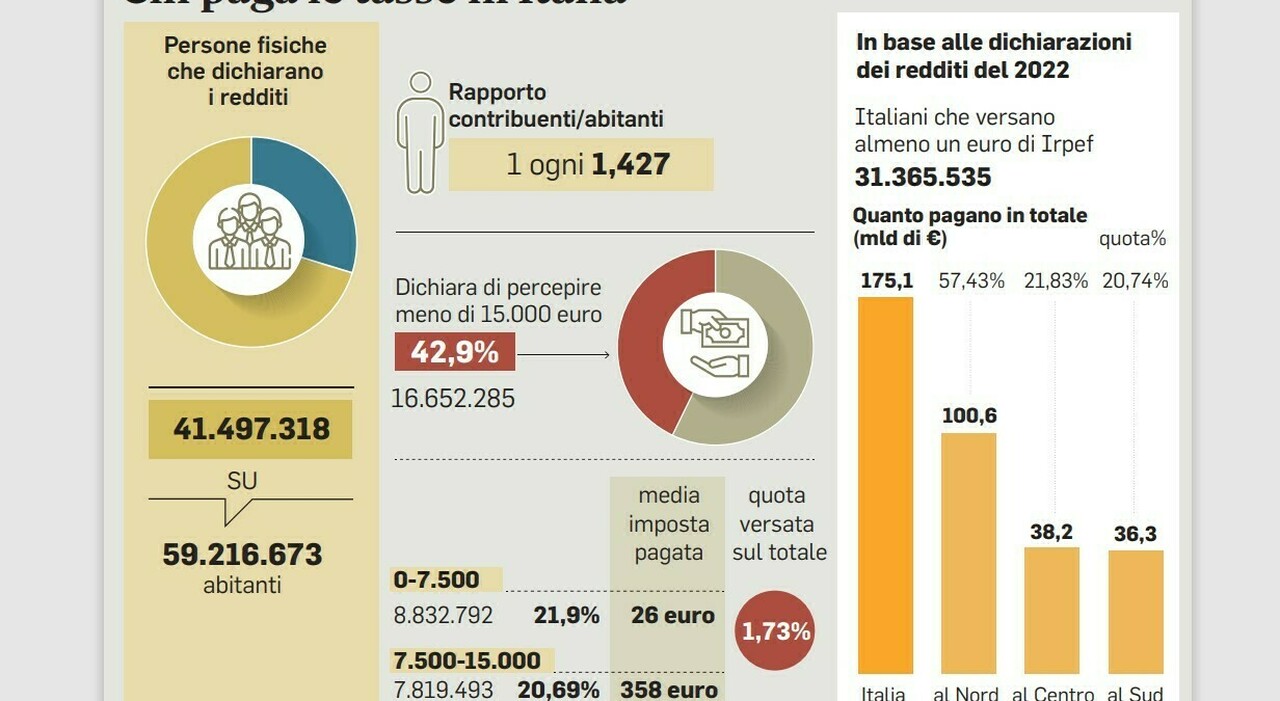Tax freedom day is coming. This is the last weekend of the year in which Italians are called to work for the Tax Office, whose revenue for 2024 is expected to be 909.7 billion euros. From June 3, according to data processed by the Cgia of Mestre, the so-called "tax liberation day" begins. It is an important milestone, albeit purely symbolic. From Monday, in short, we will work to satisfy our needs and no longer to pay taxes, duties, levies, and social security contributions expected in 2024. But the tax burden continues to weigh, although this year the pressure is expected to decrease by 0.4% compared to 2023.
The estimates of the Cgia
For 2024, it took 154 days of work (including Saturdays and Sundays) to meet all tax payments. Compared to 2023, this year we "free" ourselves from taxes one day earlier, although by the calendar it is two days, because 2024 is a leap year. If for those who pay taxes to the last penny the "tax freedom day" is a deadline ideally to celebrate, for those who do not pay them or do so sporadically, it is just another day.
Analysis
In this last case, there are, for example, completely or partially irregular workers who, according to an Istat estimate referred to 2021, are at least 2.8 million. In absolute terms, the regions with the most are Lombardy (439,500 irregular units), Lazio (366,200), and Campania (308,200). If, on the other hand, we refer to the rate of irregularity, the regions of the South are the most affected by this scourge. Calabria, for example, has a rate of 19.6%, Campania 16.5, Sicily 16, and Apulia 14.4. The Italian average is 11.3%. According to the Def, the tax pressure in 2024 is 42.1% of GDP, down 0.4% compared to 2023.
Tax pressure among the highest in Europe
Net of social security contributions, if we analyze the 2021 revenues of the main taxes, the "highest payers" are Lombardy (87.9 billion euros), Lazio (43.5), Emilia Romagna (34.2), and Veneto (33.8). Italy, with 42.5%, continues to have a level of tax pressure among the highest in the EU.
Other States
In 2023, only France, Belgium, Denmark, and Austria recorded a tax burden higher than ours. If in Paris the tax pressure was 45.8% of GDP, in Brussels it was 45.3%, in Copenhagen 44.5%, and in Vienna 42.9%. Among the 27 of the EU, Italy was "placed" in fifth place. Germany, on the other hand, was tenth with 40.6% and Spain thirteenth with 37.8%. The average of European countries was 40.3%; 2.2 points less than the Italian average.
This article is automatically translated
